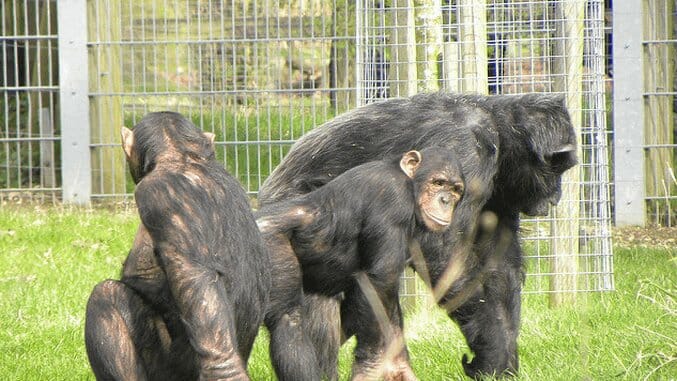Chimpanzee Interactions Lead To New Clues About Human Evolution

Signs of altruism— selfless concern for others— have been seen in chimpanzees, giving scientists cause to believe that this could be the basis of modern-day human cooperation.
Until this point, it has been difficult to pinpoint such behavior in animals closest to humans’ evolutionary makeup, as anything akin to selflessness had only been noted in rats in the past. However, in a recent experiment, it appeared that chimps would be willing to give up a treat if it meant that another unrelated chimp could be helped. In addition, it was found that chimps in the wild would risk going on patrols and standing guard even for those not of their own kin.
As Science Magazine reported, the first study was formulated around a sharing game that required the chimps be put into pairs and given options for receiving or not receiving treats. After this, one chimp was trained to give up their treat completely, while the second chimp had the option to simply eat their own treat or pull a rope and reward the both of them. At least 75% of the time, the second chimp would pull the rope, rewarding both of them and showing appreciation for the first chimp who’d given its treat for the pure reason of that chimp having taken a risk.
-

-

-

-

-

-

-

-

-

-

-

-

-

-

-

-

-

-

-

-

-

-

-

-

-

-

-

-

-

-

-

-

-

-

-

-

-

-

-

-








































